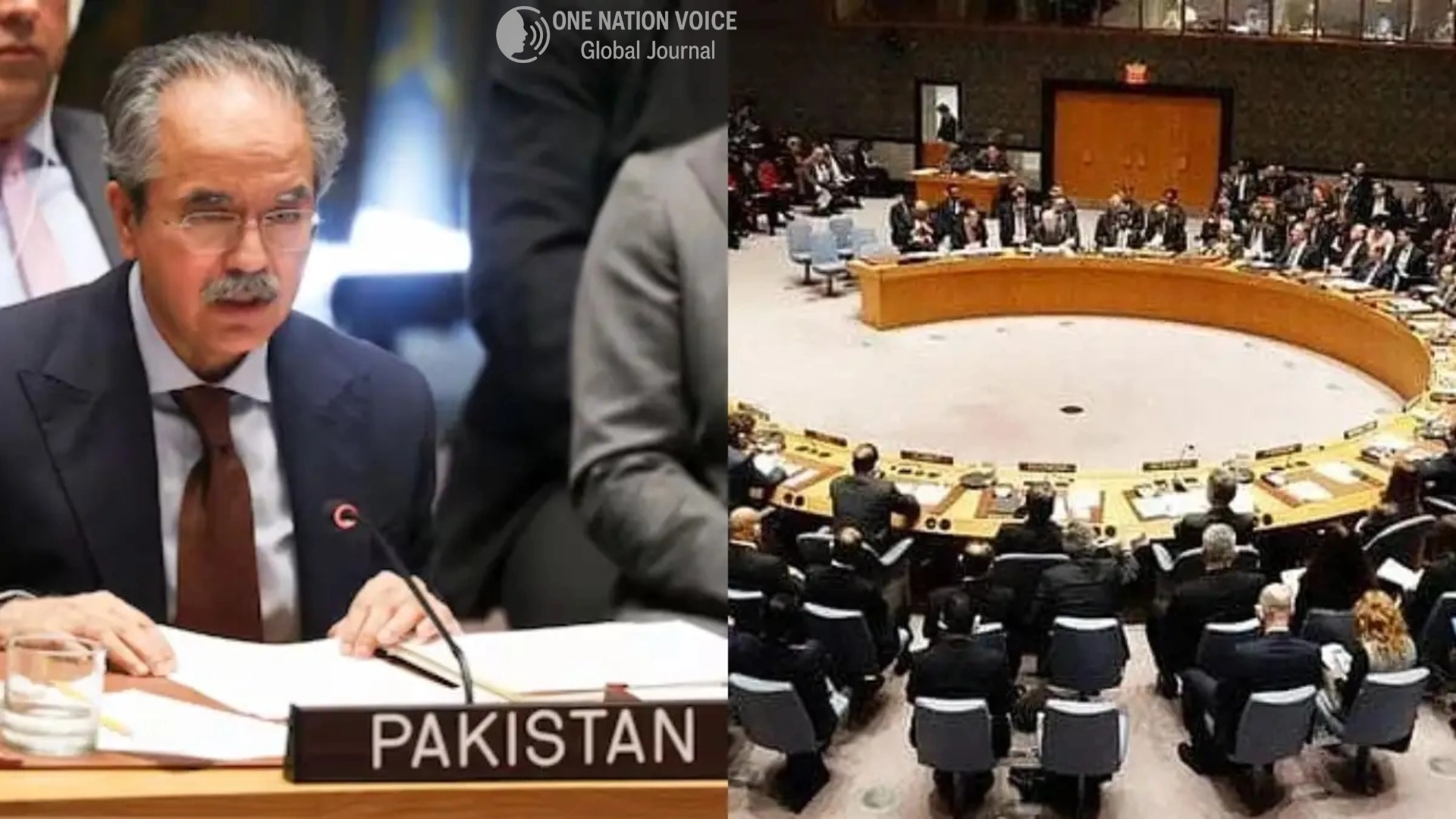Pakistan’s Leadership at UN Security Council

Pakistan’s Leadership at UN Security Council
Advocating Peace, Justice, and Islamic Solidarity
In July 2025, Pakistan’s concluded its term as a president of the United Nations Security Council (UNSC), one of the greatest success stories that tremendously boosted its international image and reputation. During its reign, Pakistan boldly tried to meet important issues that were faced in the region and even globally. Pakistan led the struggle by championing the issue of Kashmir and the rights of Palestinians and the use of multilateral frameworks in resolutions of international disputes. Thereby, effectively displaying its leadership in the promotion of peace, solidarity, and justice. Of particular interest to Pakistan was the Islamic world, and the importance of Islamic unity through organizations such as the Organization of Islamic Cooperation (OIC) and the demonstrated aims of ensuring that the Islamic world contributes to international peace and security.

In its tenure, at the UNSC, Pakistan held important signature events that were able to reinforce its intentions towards protecting multilateralism and peaceful settlement of disputes. Among the most significant occasions was the high level open debating on the promotion of international peace and security through an international organization and the settlement of international disputes by peaceful means that was chaired by the Deputy Prime Minister and the Minister of Foreign Affairs of Pakistan, Mohammad Ishaq Dar. Such an event also entailed the address of the UN Secretary General who made it clear that the collaboration between the UN and other regional organizations such as the OIC could not be undermined.

Unlike the Pakistani triumphs within the UN, India underwent a serious credibility problem at the UN because of the growing number and intensity of abuses of human rights and the growing condemnation by the international community.
During the present regime, India has been gradually destroying its democratic institutions, suppressing peaceful protest, infringing media freedom, and oppressing religious and ethnic minorities, such as Muslims, Dalits, Sikhs, Christians, and Adivasis.
Not only have these acts reflected negatively on India but also made the country infamous in the global arena as a denier of human rights with reports referring to India as the Rape Capital because of high sexual assaults and hate speeches.
The resulting acts of India have also been questioned, through what are described as police abuses, extrajudicial killings as well as fake encounters. Such incidences have put a stain on India regarding its practice of maintaining human rights and justice. Deploying the draconian laws to gag civil society, clamp down voices of criticism and ensure prevalence of hate speech has prompted international communities to demand immediate changes. Indeed, certain international bodies have delayed the recognition of India institutions on human rights, based on failure of the institutions to meet the UN standards on human rights. Also, India has been accused of carrying out secret operations in other countries such as the crimes against its critics in other nations like Canada and the United States, further pushing it to the periphery of the international community.
By stark opposition, the Pakistani presidency of the UNSC is billed to a commitment of multilateralism, peace of the world and facilitation of justice. Pakistan did not only promote peaceful settlement of disputes but also accounted India of the human rights abuses.
The conflicting worlds when Pakistan held the UNSC Chairmanship, underscore the increased influence of the country as a responsible proponent of international justice, and revealed the loss of India about credibility in the international arena. In promoting collaboration and communication with other countries, Pakistan demonstrated its leadership capabilities in terms of solving multilateral geopolitical problems with stressing its priorities as stability and human rights in the region.

The effective experience of Pakistan at the UNSC was not only about advancing this country, but also about promoting the interests of the defeated, peace, and serving as a vivid contrast to the declining international image of India. The fact that Pakistan facilitated the UNSC during a time when geopolitical tensions were high and when there were humanitarian issues proved that diplomacy and multilateralism was the way forward in dealing with challenges facing the world globally. This leadership highlighted the commitment of Pakistan towards peace, justice as well as the advocacy on human rights besides putting a special light on the human rights abuses that were being done under the current Indian government.
In the end, the Pakistani presidency of the UNSC in July 2025 would be a big diplomatic success, as first of all it would confirm Pakistani status as a significant promoter of peace, justice, and unity of the Islamic world. Whereas India lost credibility at the international arena through its continuing human rights violations, Pakistan has become a responsible international actor, which believes in promoting peace and support multilateralism and will guarantee that the voices of the oppressed people are heard in the international arena.
Disclaimer:
The views and opinions expressed in this article are exclusively those of the author and do not reflect the official stance, policies, or perspectives of the Platform.












